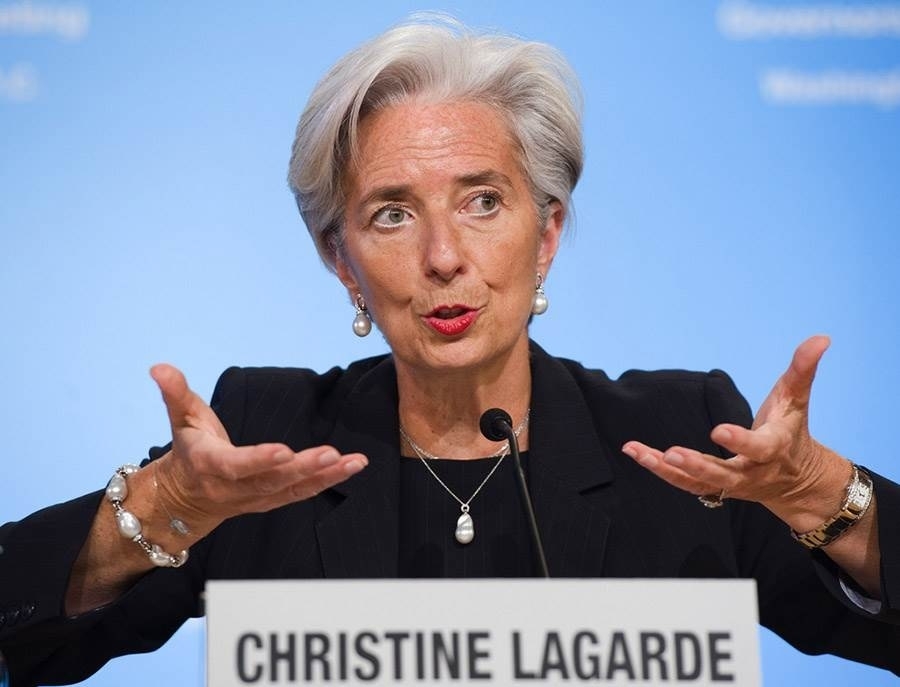The International Monetary Fund is seeking a leading role in rallying the world’s central banks to get ahead of digital money and cryptocurrencies in the global financial system, asking authorities to “distinguish between real threats and needless fears”, according to a blog post by the fund’s chief.

“Policymakers should keep an open mind and work toward an even-handed regulatory framework that minimises risks while allowing the creative process to bear fruit,” IMF Managing Director Christine Lagarde wrote in her blog.
Her remarks, made ahead of the IMF’s annual spring meeting in Washington, came as the world’s financial regulators grapple with how best to handle digital money that has been designed to trade without the oversight of a central monetary authority.
There are as many as 1,500 different types of digital currencies in circulation around the world, valued at an estimated US$300 billion. That is about 4.8 per cent of the world’s foreign exchange reserves – and bigger than Singapore’s reserves, which are the 12th biggest in the world, being valued at around US$282 billion according to Trading Economics.

Bitcoin, first released in 2009, is the oldest and most valuable cryptocurrency by far, but dozens of new currencies are being created every week.
Some central banks and governments are trying to get ahead of the curve.
Japan, one of the world’s most crypto-friendly countries, is home to several of the largest crypto exchanges, and allows bitcoin to be used in transactions. The People’s Bank of China is believed to have established the world’s first research institute to study digital currencies.
“We are looking at something which is developing fast, and which is highly volatile, with benefits and downsides,” Lagarde said during an interview in Hong Kong with the South China Morning Post.
“Firstly, the illicit use of digital currency plus abuse of consumers’ financial illiteracy must be guarded against. Secondly, innovations from the use of digital mechanisms need to be explored and encouraged. So it’s a combination of having a framework that protects, and not stifling innovation, that can lead to cost efficiency.”
Assets tied to cryptocurrencies don’t pose an immediate danger to the global financial system because their footprint is still small, and they have limited links to the rest of the financial system, although they have the potential to magnify the risks and increase the transmission of economic shocks, according to IMF’s preliminary assessment.
Instead, they can “enable fast and inexpensive financial transactions” and their underlying technology – distributed ledger technology (DLT) – could improve the efficiency of financial markets and maintain secure storage of important records.
“We need to remain alert and vigilant,” Lagarde said. “We must act quickly to close the knowledge gaps that inhibit the effective monitoring of crypto-assets. There should be systemic risk assessment and timely policy responses, as well as measures to protect consumers, investors, and market integrity.”
The IMF, whose members are drawn from 189 economies, can play an important role by offering advice and serving as a forum for discussion and collaboration in the development of a consistent regulatory approach, she said.
The IMF Innovation Lab, a unit of the monetary authority, is holding several sessions this week on topics related to cryptocurrencies, including distributed ledger technology, successful applications of blockchain, and the risks and opportunities of cryptocurrencies, according to its schedule.

Hi! I am a robot. I just upvoted you! I found similar content that readers might be interested in:
http://www.scmp.com/business/banking-finance/article/2141983/world-must-be-even-handed-handling-digital-currencies-risks
Downvoting a post can decrease pending rewards and make it less visible. Common reasons:
Submit